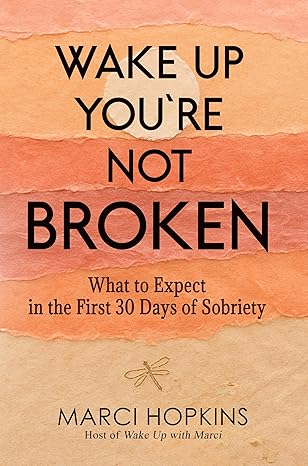We’ve all heard the saying, “You are what you eat.” While it usually gets tossed around when talking about physical health, it’s just as true for our minds. The connection between nutrition and mental health is no longer just a hunch—it’s backed by a growing body of science. The food on your plate can influence how you feel, how sharp you think, and even how you cope with stress.
For a platform like Wake Up with Marci, which champions empowerment, resilience, and emotional balance, understanding this food–mood connection is a game-changer. If you’ve tuned into mental health and wellness podcasts, you’ve likely heard experts say that what we eat fuels not just our bodies but also our emotional well-being. Let’s break it down and explore how everyday food choices shape your brain and mood.
The Gut–Brain Connection
The gut and the brain are in constant conversation through the gut-brain axis. That’s why your stomach may feel tied in knots when you’re anxious, or why stress can cause digestive issues. This two-way communication is fueled by neurotransmitters like serotonin—around 90% of which is actually produced in the gut.
So, when your diet is full of processed foods, refined sugar, and unhealthy fats, your gut bacteria can get thrown off balance. That imbalance can trigger inflammation, disrupt serotonin production, and lead to mood swings or anxiety. On the flip side, whole foods like leafy greens, fermented foods, and fiber-rich veggies feed your “good” gut bacteria, keeping your brain chemistry in check.
Food and Mood
- Omega-3 fatty acids (found in salmon, walnuts, flaxseeds) support brain health and may ease symptoms of depression.
- Complex carbs (like oats, quinoa, and brown rice) help regulate blood sugar and provide steady energy, reducing irritability.
- Antioxidants (from colorful fruits and vegetables) protect brain cells from oxidative stress, which has been linked to mental decline.
- Protein (especially tryptophan-rich foods like turkey, eggs, and tofu) supports neurotransmitter production, impacting mood regulation.
Eating more of these foods doesn’t have to be complicated. Think of it as adding rather than restricting—sprinkle seeds on your salad, swap chips for fresh fruit, or start your day with oatmeal instead of a sugary pastry.
Anxiety and What You Eat
Anxiety is complex, but nutrition plays a bigger role than most realize. Caffeine and sugar, for example, are common culprits for intensifying anxious feelings. That jittery coffee crash or sugar rush can mimic symptoms of anxiety, making you feel more on edge.
Magnesium-rich foods like spinach, almonds, and dark chocolate (yes, in moderation!) can help calm the nervous system. Meanwhile, foods high in probiotics—like yogurt, kimchi, or kombucha—can reduce inflammation and promote balance in the gut, which in turn may ease anxiety symptoms.
Cognitive Function and Focus
Brain fog, forgetfulness, or just struggling to focus often have dietary ties. Dehydration, lack of omega-3s, and too many refined carbs can make it hard to stay mentally sharp.
Nutrients that stand out for cognitive health include:
- B vitamins for memory and energy.
- Iron for oxygen flow to the brain.
- Healthy fats for protecting brain cells and aiding communication between them.
A Mediterranean-style diet, which emphasizes fish, olive oil, nuts, fresh produce, and whole grains, has been consistently linked to lower risks of cognitive decline.
Small Shifts That Add Up
Changing your diet doesn’t have to mean a massive overhaul. Start small:
- Swap soda for water or herbal tea.
- Add one extra serving of vegetables to your meals.
- Choose whole-grain bread instead of white.
- Try “Meatless Monday” and experiment with plant-based proteins.
- Prep healthy snacks like nuts, hummus, or fruit for busy days.
These gradual shifts help build sustainable habits, and before you know it, your mood and focus may start to feel lighter and clearer.
How Wake Up with Marci Supports Your Wellness Journey
At Wake Up with Marci, the focus is always on holistic empowerment—from breaking generational cycles to fostering resilience and prioritizing mental well-being. Nutrition is just one piece of that puzzle. Marci Hopkins and her team bring together conversations on mental health, personal growth, and wellness to inspire you to take charge of your life.
Episodes often highlight practical tips from nutritionists, psychologists, and other thought leaders. If you’re curious, check out mental health and wellness podcasts from Wake Up with Marci to dive deeper into how food, habits, and mindset connect. You’ll walk away with not just knowledge, but also the motivation to apply it in your own life.
FAQs
- Can diet alone treat mental health conditions?
No, diet is a supportive tool, not a replacement for therapy or medication. It works best alongside professional treatment.
- How quickly will I notice changes from eating better?
Some people feel differences in energy and mood within days, while deeper mental health benefits may take weeks.
- Are supplements as effective as whole foods?
Supplements can help if you’re deficient, but whole foods offer a wider range of nutrients and fiber that pills can’t match.
Final Thoughts
Nutrition may not be the magic cure-all, but it’s one of the most powerful ways to support your mental health. The foods you choose every day can either fuel anxiety, brain fog, and low mood—or they can help you feel balanced, energized, and focused. By making mindful choices and leaning into resources like mental health and wellness podcasts from Wake Up with Marci, you can start to nourish both your body and your mind.



